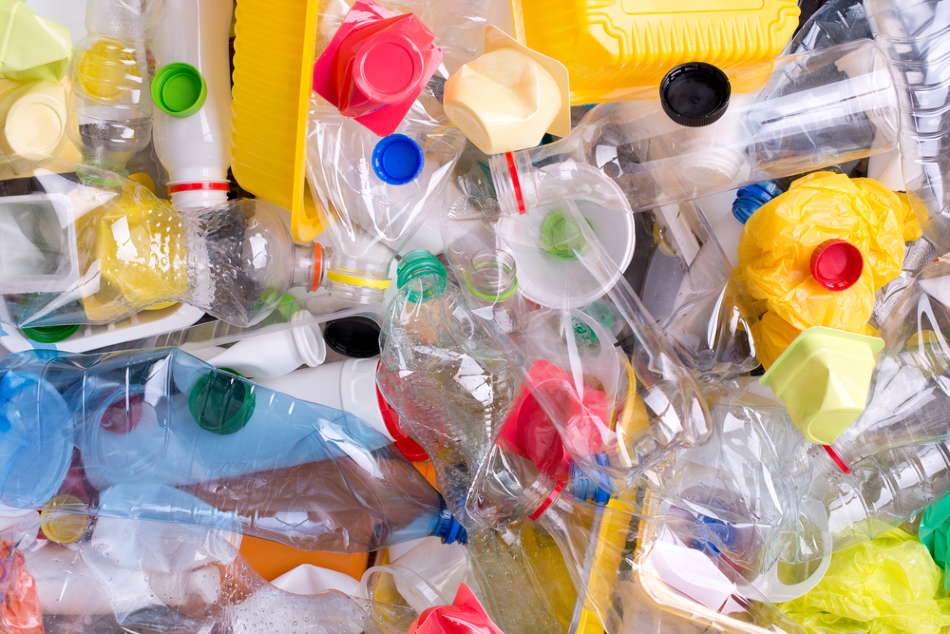
Image Credit: photka/Shutterstock.com
Plastics are strong, durable, lightweight and difficult to breakdown, and that is an environmental problem. Material scientists are eager to find ways to mitigate the damages unleashed by the widespread use of plastic materials.
The Global Plastics Industry and the Problems it Poses
The global plastics industry generates more than 270 million metric tons every year. Sadly, a lot of the plastic that is produced ends up in landfills and bodies of water.
The Great Pacific Garbage Patch is probably the most prominent example of plastic pollution. The patch spans around 20 million sq. km and contains masses of microscopic plastic commonly ingested by ocean wildlife.
Approximately one-fourth of all plastic produced by the plastics industry is polyethylene terephthalate (PET), a material frequently used in packaging for food and retail items. PET is also found in polyester clothing.
The VolCat Plastics Recycling System
In the battle against the massive, growing issue of plastic pollution, scientists from IBM recently announced a new plastics recycling system called VolCat, short for volatile catalyst. The system is based on a catalytic chemical reactor that converts PET waste into raw plastic material.
Cost-effective and environmentally friendly, the VolCat system breaks down PET with a specifically calibrated blend of chemicals, atmospheric pressure and heat. VolCat is capable of recycling unwashed hard plastics from bottles and containers and digesting them into a raw PET powder which can be used to fabricate new plastic products.
VolCat's main advantage over conventional plastics recycling systems is its ability to process waste plastic without any washing or sorting. The IBM system can also process plastic goods that are notoriously difficult to recycle, such as polyester clothing, rugs and toys.
The defining quality of VolCat is its usage of catalytic recycling, which is a type of recycling that is highly discerning in finding and breaking down plastic materials within a large "grab bag" of waste material. The VolCat method gets rid of the need for waste materials sorting.
The VolCat Process
The VolCat plastics recycling system begins as any other similar recycling process does: with the collection of plastic bottles, containers and other PET-based items. These waste materials are pulverized and blended with the system’s signature catalyst inside a pressurized chamber with a temperature of greater than 200 degrees Celsius.
In this environment, the catalyst is capable of breaking down and refining the pulverized plastic. In the end, the system divides unwanted impurities from raw material that can be fabricated into extremely pure PET. As soon as the digestion phase is finished, the volatile catalyst separates from the reaction blend so that it can be recovered and used again in a subsequent reaction.
Preliminary evaluations conducted by the IBM team have revealed how value can be extracted from the novel plastics recycling system by yielding PET from mixed waste, something which is quite difficult to achieve. The IBM system produces PET identical to virgin PET. Conventional recycling plants yield recycled PET that contains just 90% PET, despite the quality of the recycling material. Furthermore, a conventional process cannot accept colored PET packaging.
Because VolCat can be used on mixed waste to extract PET, it can enable a less labor-intensive recycling process. Plastics that are collected from municipalities always include dirt, paper labels, adhesives and other materials that can affect the recycling product. With VolCat, these unwanted materials do not need to be removed.
According to the latest reports, VolCat technology has yet to be commercialized. However, reports state that IBM is in discussion with multiple companies, with the goal of moving VolCat out of the research stage as quickly as possible. If VolCat becomes widely adopted, IBM researchers say it could significantly lessen the need for new plastic made from petroleum. By depending more on VolCat and other recycling processes, it will decrease the demand for fossil fuels, which translates to yet another environmental benefit.
Fighting Plastic Waste on the Front End
While the VolCat system and other plastics recycling systems focus on the end-of-use period of a plastic material’s lifetime, other efforts are focused on creating plastic materials that have little or no environmental impact.
Click here for more information on clean technology equipment.
Researchers at the University of Houston have developed a new plastics-producing process that yields a type of polymer that actually facilitates the mixing of different plastics during the recycling process – an issue that has been a major block to recycling efforts.
The method developed by the team is used to produce polyolefins, which are essential building blocks of all plastics. Importantly, the newly developed process would allow for plastics to be made from food oils, rather than fossil fuels.
References and Further Reading
Goldberry, C. (2019). IBM’s VolCat process uses ‘molecular sorting’ to turn mixed-waste recyclate into virgin-grade PET. [Online] Plastics Today. Available from: https://www.plasticstoday.com/
Hirsh, S. (2020). IBM Develops Innovative Recycling System For Fabric, Dirty Plastic Bottles, and More. [Online] GreenMatters. Available from: https://www.greenmatters.com/technology/2019/02/11/COtfH4llP/ibm-recycling-system-volcat
Kever, J. (2020). ‘Deceptively Simple’ Process Could Boost Plastics Recycling. [Online] University of Houston. Available from: https://uh.edu/news-events/stories/2020/march-2020/03092020harth-plastics-recycling.php
Disclaimer: The views expressed here are those of the author expressed in their private capacity and do not necessarily represent the views of AZoM.com Limited T/A AZoNetwork the owner and operator of this website. This disclaimer forms part of the Terms and conditions of use of this website.